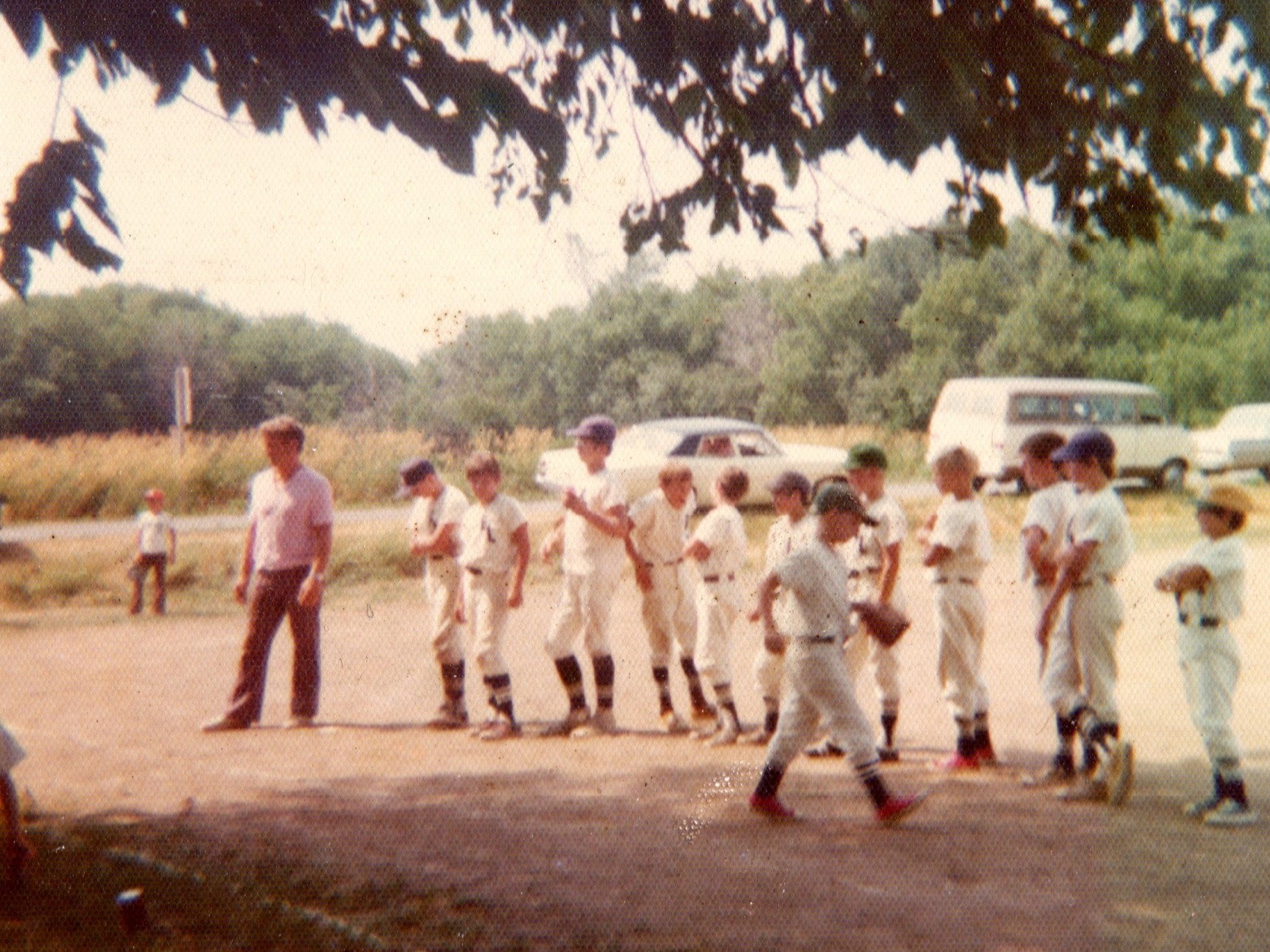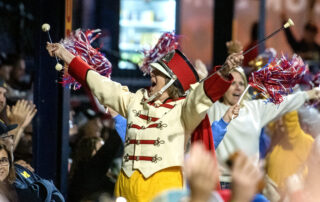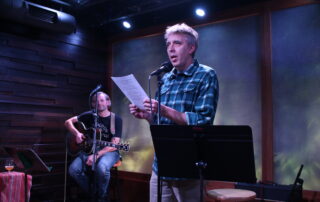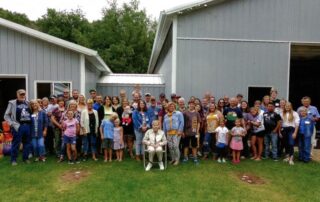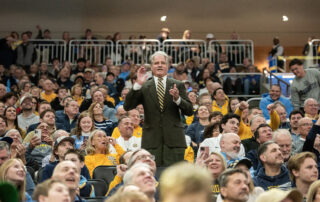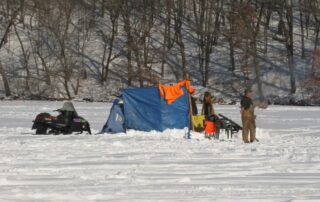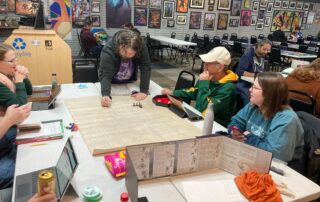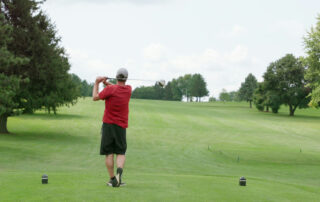Remember the classic scene in “The Sandlot?” When Smalls hits a homer into the neighbor’s yard…and it turns out the baseball he swiped to do this was signed by Babe Ruth?
Well, writer Chris Hardie had his own Sandlot moment back on the farm he grew up on in western Wisconsin.
==
Mid-summer, circa 1973. My brother Kevin and I were playing baseball.
Our makeshift diamond had the chicken coop as the backstop, sand and gravel as our infield, a very spacious center field and no pulling allowed. A hit to left field would have gone directly into Aunt Sara’s house.
We never really ran bases, as our two-man team consisted mainly of someone pitching and someone hitting. If we had cousins or friends available to play, the game would move about a mile away to the ball field at the old one-room schoolhouse.
Our limited supply of baseballs made us search long and hard for foul balls that disappeared into the weeds. Mom had recently found a great deal on baseballs that were three for a buck or something like that. Unfortunately the balls turned into mush after a couple of whacks and were pretty much unusable.
So we decided to borrow “the baseball.”
Dad has never been much of a collector, but he did have one treasured possession. Sitting on the top of his dresser was a baseball that he caught at a 1957 Milwaukee Braves game.
‘57 was a magical year for Milwaukee baseball.
Hank Aaron won the most valuable player award with 44 home runs, 132 RBIs and .322 average. Warren Spahn won the Cy Young with a 21-11 record with 18 complete games, a 2.69 earned run average and three saves. Milwaukee won the National League pennant with a 95-59 record and defeated the New York Yankees in the World Series with Lew Burdette winning three games.
The baseball was a special sports memento from a special year.
Our intent was to return the baseball after we were done playing. Since it wasn’t autographed or anything, it would be no harm, no foul.
Kevin’s Louisville Slugger rested on his shoulder as I leaned in from the mound — a board on a slight rise of sand. The baseball felt good in my hand. The special ball called for a special pitch.
“Here comes my knuckle-curve Kev,” I proclaimed and let it fly.
MLB.com says the knuckle-curve is one of baseball’s greatest paradoxes, given that a curveball is defined by its spin and a knuckleball is defined by its lack thereof. It produces the desired effect of the two pitches — a slow, curveball break mixed with the unpredictable fluttering of the knuckleball.
“Very few pitchers have mastered the knuckle-curve, and those that throw it generally don’t do so often,” the website said. “It’s a deceptive weapon for those pitchers, often stashed away until they think a hitter will be fooled by it.”
I had certainly not mastered the pitch and announcing it in advance was not very deceptive. It really didn’t spin or flutter but just sort of hung in the air.
With a flick of the bat Kevin sent the horsehide wrapped, cushion-corked ball with its 108 double stitches soaring into the summer sky. We watched in awe as the ball rose higher and higher into center field and went over the old livestock shed called the upper barn.
We stood for a moment, stunned. A good shot was when you hit the side of the barn. Sometimes you can even reach the roof. Never was a ball hit over the barn. Until now. Baseball history had just been made.
“Holy crap Kev,” I said. “I think you got all of that one.”
“I think so,” he said.
Our elation was immediately tempered. That was Dad’s ball.
We ran into the no-man’s land behind the upper barn to begin our search. It was a massive thicket of head-high weeds intertwined with old farm equipment. We searched for about an hour before giving up.
A harder task was before us. How were we going to break the news to Dad that his precious sports souvenir was gone?
We were equally to blame. I threw the ball. Kevin hit the ball. We were willing participants in the commission of a crime.
I can’t remember if it was Kevin’s idea or mine. But we decided to deflect some of the fault to another party who had no knowledge of the crime but in our minds was really the person to blame.
So after chores that evening while we were eating dinner, we told Dad what happened.
“You did what?” his booming voice raised rhetorically.
“But it was Mom’s fault,” Kevin said. “If she wouldn’t have bought those cheap baseballs we wouldn’t have had to use yours.”
It wasn’t fair to gang up on Mom, but it was the diversion that we needed. Dad went from near eruption status to steaming. And we promised to look for the ball again the next day.
We never found the baseball. Dad forgave us. The next week Mom stopped at the local Coast to Coast and bought us some new “real” baseballs.
We played baseball a lot that summer and even joined a local Little League team. We had lots of fun but never won a game.
I never did master that knuckle-curve.
But I’ll always remember our version of the Shot Heard ‘Round the World.
